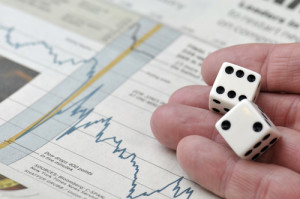 My latest Financial Post blog addresses the controversial call earlier this week from the Royal Bank of Scotland to “sell everything.” Click on this headline for the blog: If you try to time the market to sell everything you have to time it to get back in.
My latest Financial Post blog addresses the controversial call earlier this week from the Royal Bank of Scotland to “sell everything.” Click on this headline for the blog: If you try to time the market to sell everything you have to time it to get back in.
In a nutshell there are both commissions and taxes to consider. It all depends on whether you’re in discount brokers, full-service brokerages or use Managed Money, and the split between Registered and Non-Registered Funds. It’s going to cost much more to liquidate individual stocks in a taxable portfolio than a single “Go anywhere” global ETF held in registered accounts. And depending on the kind of mutual funds you own, the costs could be negligible or significant.
Guess what Buffett isn’t doing right now
See also an excellent piece by investment writer Dan Solin that ran in today’s Huffington Post: What Warren Buffett isn’t doing. For starters, he’s not listening to media pundits. As Solin points out, the financial media loves market crashes because it creates fear and anxiety, hence more TV ratings or web traffic. And the more people panic by “selling everything,” the more commissions generated for the financial industry, as we demonstrated above.
If anything, people should be considering buying if markets sag much further, the very opposite of selling everything. But that’s a topic for another day. Generally, though refer to the series of videos we’ve been running the last few months, including the one earlier today titled Winning the Loser’s Game, part 5.





